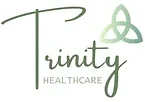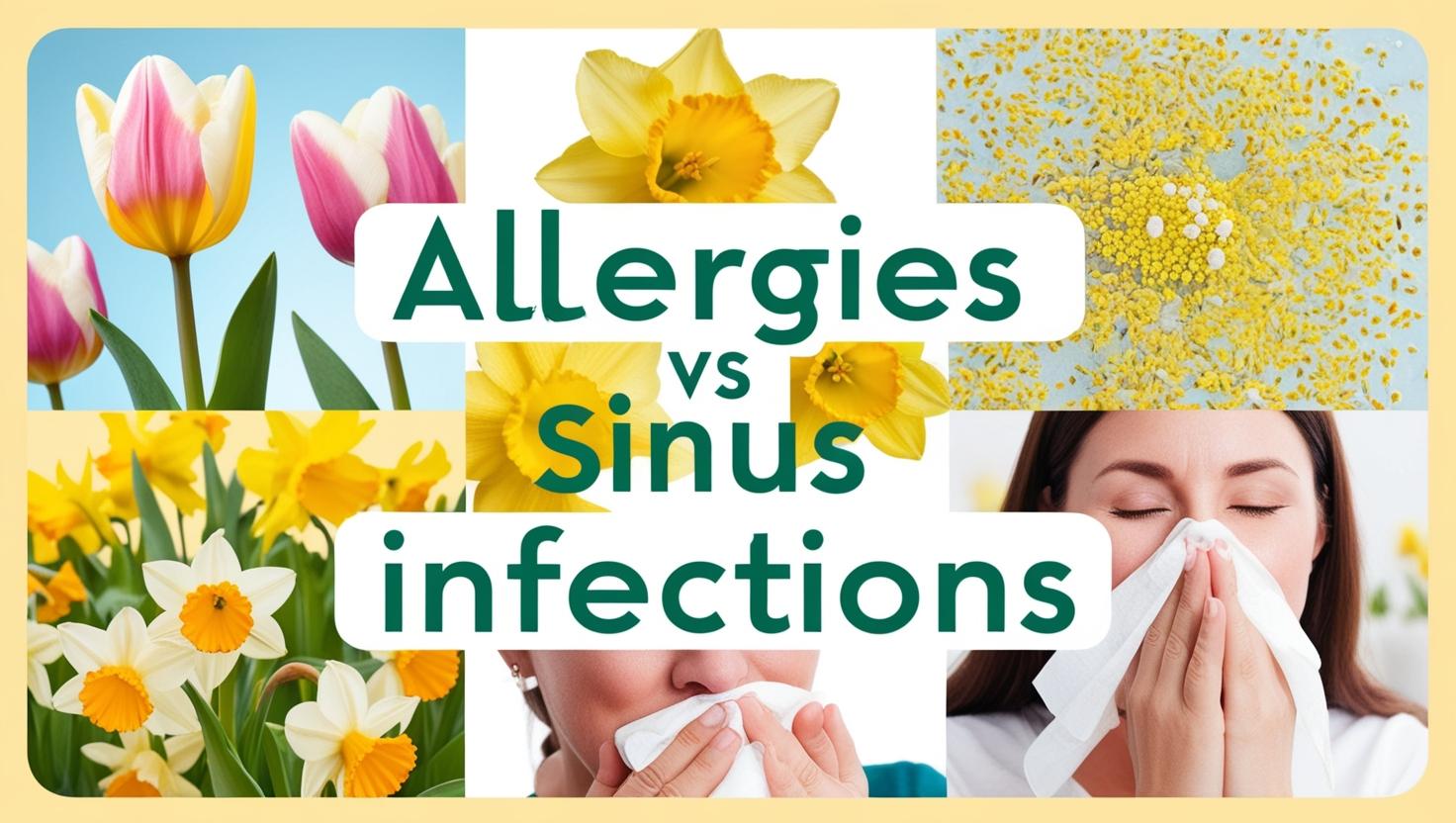- Home
- About Us
- Services
- Primary Care
- Preventative Services
- Transitional Care
- Annual Wellness Exams
- Acute Care Services
- Medical Clearance Examinations
- Chronic Disease Management
- Sports Physicals
- Geriatric Medicine
- Medication Management
- STD & UTI Testing
- Coordination of Care
- Telehealth Services
- Ordering Routine Labs and Scans
- Blog
- Patient Resources
- Contact Us
Key Takeaways
- Understanding the difference between spring allergies and sinus infections is essential for effective treatment and relief. Allergies are triggered by external allergens, while sinus infections are caused by inflammation or infection of the sinuses.
- Accurate diagnosis through physical examinations and tests can help determine the cause of symptoms, ensuring appropriate treatment—whether it’s antihistamines for allergies or antibiotics for bacterial sinus infections.
- Preventive measures, like avoiding allergens and maintaining good hygiene, can significantly reduce the risk of both allergies and sinus infections, making spring more enjoyable.
Spring has arrived! The blooming flowers and warming weather bring the promise of outdoor fun—but for many, they also bring sneezing, nasal congestion, and sinus issues. If you’ve found yourself battling symptoms like a runny nose, facial pressure, or discomfort, you might be asking yourself, “Is it allergies or a sinus infection?” Understanding the difference is the key to finding relief and getting back to enjoying the season.
This guide will walk you through the causes, symptoms, treatments, and prevention tips for both spring allergies and sinus infections. By the end, you’ll feel confident identifying which one may be affecting you and how to manage it effectively.
If you’re struggling with these symptoms, consider scheduling an appointment with Trinity Family Practice in Las Vegas for a professional diagnosis and treatment plan.
Understanding Allergies and Sinus Infections
Before we dig into the differences, it’s important to understand what allergies and sinus infections are. While they can cause similar symptoms, their underlying causes are very different. Recognizing these distinctions can help you choose the right treatment and avoid prolonging your discomfort.
What are Allergies?
Allergies occur when your immune system overreacts to substances called allergens, like pollen, pet dander, or dust mites. These substances trigger an immune response, releasing histamines that cause sneezing, itchy eyes, and congestion. Spring allergies, often called hay fever or allergic rhinitis, are especially common when trees and flowers release pollen into the air. For effective allergy management, over-the-counter antihistamines and avoiding known allergens can make a significant difference.
What are Sinus Infections?
Sinus infections, or sinusitis, happen when your sinuses (the air-filled spaces in your skull) become inflamed and infected. They might develop after a cold, from bacterial or viral infections, or as a result of chronic sinus issues. Sinus infections can also follow allergic reactions, as swollen nasal passages make it easier for bacteria to grow. Proper treatment depends on identifying if the infection is viral or bacterial.
Why Are They Confused?
Because both conditions can cause nasal congestion, runny nose, and sinus pressure, it’s no surprise they’re often mistaken for one another. However, understanding the root cause is essential for treatment.
Similar Symptoms, Different Causes
Both allergies and sinus infections share a variety of overlapping symptoms, including nasal congestion, runny nose, and sinus pressure. However, the cause of these symptoms is what sets them apart.
Allergies are triggered by external allergens, while sinus infections result from inflammation or infection of the sinuses. Correctly identifying the cause is crucial for effective treatment.
Why Knowing the Cause Matters
Using the wrong treatment can delay relief. For example, antibiotics won’t help with allergies, and antihistamines might not fully resolve a sinus infection. Understanding the cause of your symptoms ensures you get back to feeling your best more quickly.
Experiencing persistent sinus or allergy symptoms? The healthcare professionals at Trinity Family Practice can help diagnose the issue and recommend the most effective treatment options.
Key Differences in Symptoms
How can you tell the difference between allergies and sinus infections? Paying close attention to specific symptoms can provide valuable clues. Understanding these differences will help you take appropriate action for relief.
Allergies
- Clear nasal discharge that’s watery and consistent
- Itchy eyes, nose, or throat, often accompanied by sneezing
- Seasonal patterns: worsens with exposure to pollen or certain allergens
- Postnasal drip and mild congestion
Sinus Infections
- Thick yellow or green nasal discharge that indicates infection
- Facial pain or pressure, especially around the eyes, cheeks, and forehead
- Fever (particularly with bacterial sinus infections)
- Cough that may worsen at night
- Fatigue caused by infection
If you’ve noticed a combination of these symptoms, assessing their severity and duration can further help you decide whether allergies or a sinus infection is the cause.
Diagnosing the Condition
When symptoms persist or worsen, consulting a healthcare professional is essential for proper diagnosis and treatment. A timely visit can prevent complications and speed up your recovery.
Diagnosing Allergies
For allergies, a healthcare provider may use:
- Skin or blood tests to identify your specific allergens.
- Physical examination to rule out other causes of symptoms.
- Discussion of medical history, including patterns of exposure and symptom timing.
Once the allergens are identified, treatments like allergy shots or immunotherapy can help manage your reactions effectively.
Diagnosing Sinus Infections
Sinus infections are diagnosed using methods such as:
- Physical examinations to check for tenderness or blockage.
- Nasal endoscopy, which allows your doctor to view the sinuses directly.
- Imaging tests, like CT scans, to identify blocked or inflamed sinuses.
Proper diagnosis ensures that you receive the right treatment—whether it’s antibiotics for bacterial infections or other remedies for viral cases.
Treatment Options
Choosing the right treatment depends on identifying the underlying cause of your symptoms. Here’s a look at how to manage both allergies and sinus infections effectively.
Relieving Allergy Symptoms
- Over-the-Counter Medications: Antihistamines and decongestants can quickly address symptoms.
- Nasal Sprays: Steroid nasal sprays can reduce inflammation and ease congestion.
- Immunotherapy: Allergy shots or oral tablets may help desensitize your body to allergens over time.
- Avoid Allergens: Using HEPA filters at home and staying indoors when pollen counts are high can make a big difference.
Treating Sinus Infections
- Rest and Hydration: Keeping hydrated helps thin mucus and alleviate sinus pressure.
- Medications: Viral infections may only need rest and decongestants, while bacterial sinus infections may require antibiotics.
- Nasal Irrigation: Using saline sprays or a neti pot can flush out nasal passages.
- Surgery: For chronic or severe cases, procedures to remove blockages might be recommended.
When to Consult a Doctor
Not every sinus issue or allergy flare-up requires medical attention, but certain symptoms do. Seek help if you experience:
- Symptoms lasting longer than 10 days with no improvement
- Severe facial pain, swelling, or high fever
- Difficulty breathing or persistent symptoms that worsen over time
A healthcare provider can help with accurate diagnosis and tailored treatments to get you back on track. If you’re in the Las Vegas area, the team at Trinity Family Practice is here to assist with professional and compassionate care.
Preventing Allergies and Sinus Infections
Prevention is always better than cure. Here are practical steps to minimize your risk:
- Use HEPA Filters: These trap airborne allergens like pollen and dust.
- Practice Hygiene: Regularly wash your hands and clean surfaces to prevent infections.
- Know Your Triggers: Identifying specific allergens helps you avoid exposure.
- Stay Healthy: Keep your immune system strong with a balanced diet, regular exercise, and sufficient sleep.
By integrating these habits into your routine, you can significantly reduce the frequency and severity of symptoms.
Make Spring a Breeze!
Spring allergies and sinus infections can both put a damper on the season. By learning to spot the differences, you can take the right steps for relief—and prevent future discomfort. Proper diagnosis and treatment not only help manage symptoms but also improve your quality of life.
Don’t let allergies or sinus infections hold you back this spring. Schedule an appointment with Trinity Family Practice today to find lasting relief and get back to enjoying the season!
POST TAGS :
Mary Huntly APRN FNP-C
Trinity Family Practice is dedicated to offering personalized, compassionate healthcare for individuals and families in Las Vegas, with a focus on quality care you can trust at every visit.
Address
Contact
+1-725-331-2299




